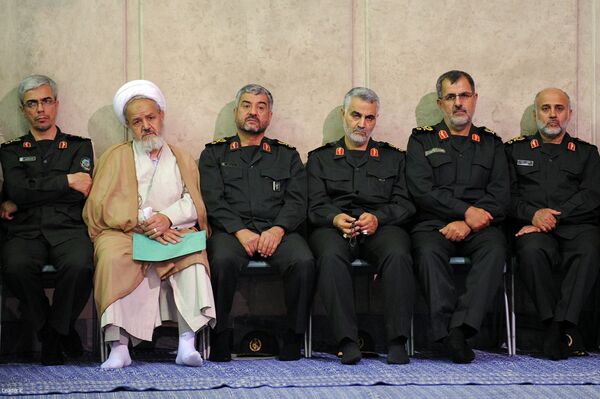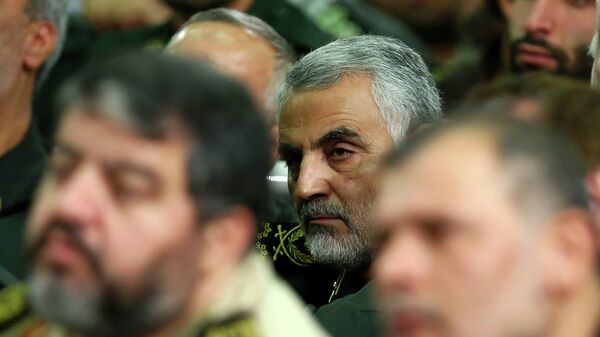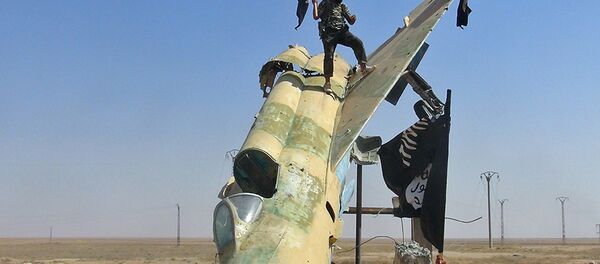Since June 2014 Iraqi forces tried to retake Tikrit five times, failing each time. However, for this operation the Iraqi government assembled a formidable force of 20,000 troops, made up of regular army units, Shiite militias and Sunni tribesmen. But perhaps the worst news for IS terrorists is that the Iranian Islamic Revolution Guards Corps will be taking part in the offensive led by Quds Force Commander General Qassem Soleimani.
In an unprecedented move, the Iraqi government and parliament officially requested General Soleimani to oversee the operation by supervising and advising Iraqi forces. Effectively, this means the Iranian general will be commanding the joint Iraqi-Iranian offensive on Tikrit.
The Iranian commander, who enjoys a great deal of influence among Shia militias in Iraq, arrived in Tikrit on Saturday and was received by a large crowd of Iraqi army leaders, soldiers, and Iraqi civilians hailing his presence.
Soleimani had played an active role in battles against the Islamic State in Iraq’s Diyala near the border with Iran; in Amerli, in the north of the country; and in Iraqi Kurdistan. He was also responsible for establishing “Hezbollah Syria,” and laying the grounds to thwart ISIL in Syria.

Under his latest command in Tikrit on Monday, the Iraqi Army has pounded Islamic State militants, capitalizing on Iraqi and international coalition airstrikes, and seizing vital areas in the province of Salahuddin, north of Baghdad, according to its governor Raed Ibrahim al-Jubouri.
"The troops advanced without resistance in al-Teen neighborhood from the northern western side of the city and from the south, the police academy building has been controlled which is (2 km away from the building of the province) and met as residents met the forces with an overwhelming revolution of joy,” said al-Jubouri, according to Lebanese daily al-Akhbar.
Commanders hope this broad operation will be a step towards liberating Mosul, ISIL militants’ main hub in Iraq.
The battle in Tirkit will also serve as a model for the upcoming — and much larger — battle to be fought in the northern Iraqi city. Mosul has been under Islamic State control since June 2014, giving militants control over much of northern Iraq.
Tikrit, located almost halfway between Baghdad and Mosul, will serve as an important transit and logistical hub between the capital and the northern city.
But the Iraqi government’s main challenge lies in overthrowing militants without alienating local Sunnis. Iraqi Prime Minister Haidar al-Abadi has strongly urged Sunni locals to cooperate with government forces for the well-being of all citizens.
“[Tikrit’s] liberation will mean liberating the whole province,” Rafid Jaboori, spokesman for the Iraqi premier said. “That will show the world once again the determination of the Iraqi government to liberate its land and protect its people no matter what their religious or ethnic background might be.”
According to al-Araby al-Jadeed, some 13,000 Islamic State militants are fighting the battle in Tikrit.




